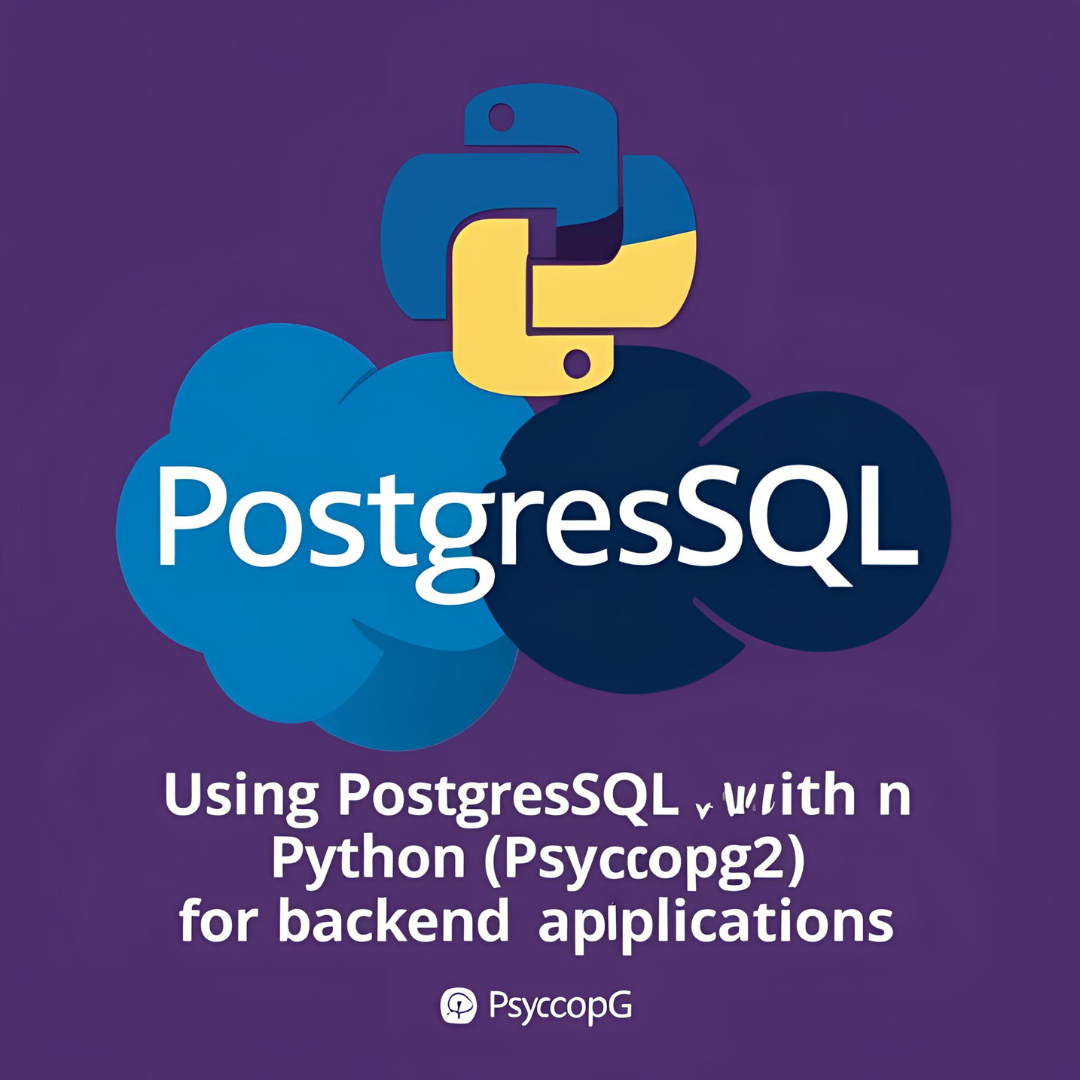Category: Python
-

Using PostgreSQL with Python (Psycopg2) for Backend Applications
PostgreSQL (often called “Postgres”) is one of the most powerful open-source relational database systems available, and Python stands as a versatile programming language for backend development. When combined with Psycopg2, the most popular PostgreSQL adapter for Python, you get a robust foundation for building reliable and scalable backend applications. This guide will walk you through…
-
Kubernetes for Python Developers: Deploying Scalable Backend Services
As Python continues to grow in popularity for backend development, the need for robust, scalable deployment solutions becomes increasingly important. Kubernetes has emerged as the industry standard for container orchestration, offering Python developers powerful tools to deploy, scale, and manage their applications. In this article, we’ll explore how Python developers can leverage Kubernetes to deploy…
-
Monitoring Python Backends with Prometheus and Grafana
In the world of backend development, especially when working with Python applications, effective monitoring is crucial for maintaining performance, reliability, and user satisfaction. Two powerful tools that have become industry standards for monitoring are Prometheus and Grafana. This article explores how to implement these tools to monitor your Python backend services effectively. Why Monitoring Matters…
-
GitHub Actions vs Jenkins: Choosing the Right CI/CD Pipeline for Your Python Backend
In the world of modern software development, continuous integration and continuous deployment (CI/CD) pipelines have become essential components of the development lifecycle. For Python backend developers, selecting the right CI/CD tool can significantly impact team productivity, code quality, and deployment efficiency. Two popular options in this space are GitHub Actions and Jenkins. In this article,…
-
Deploying a Python Backend on AWS: EC2, Lambda, and Docker
Deploying Python backend applications efficiently requires understanding various hosting options and their tradeoffs. Amazon Web Services (AWS) offers multiple deployment methods, each with unique advantages for different use cases. In this post, I’ll walk through three popular approaches to deploying Python backends on AWS: traditional EC2 instances, serverless Lambda functions, and containerized deployments with Docker.…
-
Scaling Python Backends: Database Sharding and Replication Strategies
As your application grows, one of the most challenging aspects of scaling is managing increasing database load. When query volumes and data size expand, a single database instance eventually becomes a bottleneck. In this post, I’ll explore how to implement database sharding and replication strategies in Python backends to achieve horizontal scalability and high availability.…
-
How to Handle Database Migrations in Django Like a Pro
Database migrations are a critical aspect of maintaining any evolving application. They allow you to modify your database schema over time as your application’s requirements change. Django’s migration system is powerful and flexible, but using it effectively requires understanding some best practices and advanced techniques. In this post, I’ll share strategies for handling Django migrations…
-
Using Redis for Caching in Python Backend Application
As backend developers, we’re constantly looking for ways to optimize our applications for better performance. One of the most effective techniques is implementing caching to reduce database load and speed up response times. In this post, I’ll dive into how to effectively use Redis as a caching solution in Python backend applications. What is Redis…
-
PostgreSQL with Python: Advanced Query Optimization Techniques
Written by: Rizqi Mulki – Python Backend Developer PostgreSQL is one of the most powerful open-source relational databases, but without proper optimization, complex queries can slow down your application. As a backend developer working with Python and PostgreSQL, I’ve compiled the most effective query optimization techniques to improve performance in production environments. Why Optimize PostgreSQL…
